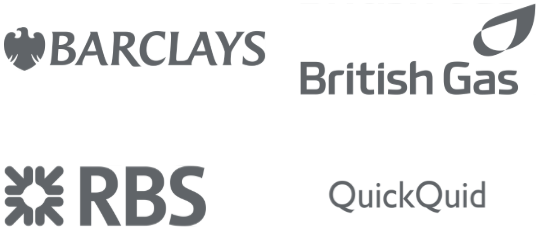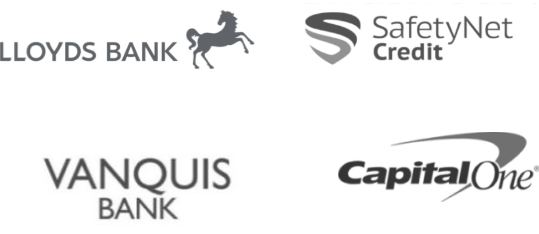Individual Voluntary Arrangement IVA Debt Help & Advice
Contact the best IVA company to check if you qualify for an individual voluntary arrangement - IVA today!
Individual Voluntary Arrangement Help & Advice
GET YOUR SMILE BACK!

FIND OUT IF YOU QUALIFY FOR DEBT WRITE OFF
What our customers are saying.
We’re committed to offering straight-forward and professional advice and customer feedback is vital to helping people just like you.
Stephanie - Newcastle
IVA APPROVED
Jamie - Bath
IVA APPROVED
An individual voluntary agreement (IVA) is an agreement between you and your creditors to help you pay off your debts at an affordable rate.
We will check to see if an individual voluntary arrangement (IVA) is right for you by reviewing your individual circumstances taking your income, your day-to-day expenditure and debt level into account. We will never suggest an IVA unless we truly believe it is the best option for you and you are happy with your proposal. If we do not think it is your best option, we will recommend the best place for you to contact for free money advice on your situation. We will provide you with informative guidance on pros and cons of each debt solution to help you understand what is involved before you commit yourself.
Usually you will: have unsecured debts of more than £7,000, have a regular income and a monthly surplus of at least £100. Become Debt Free views the IVA as a flexible financial plan, which revolves around your needs and puts you back in control.
An IVA can only be prepared for you by a qualified licensed insolvency practitioner, so there are inevitable professional fees.
We will only charge you a fee if your Individual Voluntary Arrangement (IVA) is proposed and accepted by your lenders.
All fees are paid out of – not in addition to – your regular affordable monthly payments.
Once your IVA has been accepted, the fees you pay will be:
- A Nominee’s fee
- Supervisor’s fee
- Costs/expenses
Nominee’s fee:
This fee covers our professional costs and charges for arranging your IVA including: Preparing your IVA proposal – which sets out the proposed terms of your IVA and provides your lenders with a detailed snapshot of your finance Organising the creditors’ meeting, in which lenders can request changes to the terms of your IVA It will typically be between £1,000 and £2,000 and is often capped to an amount equal to your first 5 months’ IVA payments. The Nominee’s fee will be paid first before any payments are made to your lenders.
Supervisor’s fee:
The Supervisor’s fee covers the ongoing work involved in running your IVA and is usually calculated as a percentage of “realisations”: typically it is charged at 15% of any money received by the Supervisor and distributed to your lenders, such as your monthly contributions, any assets (e.g. the equity in your property, successful PPI mis-selling claims) and windfalls (e.g. an inheritance) that you receive during the term of your IVA.
Costs:
We are also entitled to claim back the cost of certain expenses (such as postage, insurance, etc) incurred directly in connection with the running of your IVA.
The amount of our fees will be clearly set out your IVA Proposal. They must be approved, and may be changed before it is accepted, by your lenders.
The average fees paid by our clients are currently: Nominee’s fees £1,383 Supervisor’s fees £1,575 Supervisor’s costs £912
There are some debts that cannot be included in your IVA and will still require repayments throughout and after your plan is completed. We take these debts into account when looking at your income and expenditure to ensure that you can afford the monthly payment into your IVA.
Debts included:
- Personal unsecured loans
- Payday loans
- Credit cards
- Store cards
- Bank overdrafts
- Catalogue debts
- Personal guarantees
Debts excluded:
- Mortgage
- Secured loans
- Student loans
- Court fines
IVA arrangement depends on how quickly we receive the required information from you. The quicker we receive information from you each time it is requested, the quicker we will be able to move. We want you to get the certainty of an IVA as soon as you can. When we receive all the required information from you, we can have a draft proposal created and sent to you for review within 5 working days.
If your IVA proposal is not approved, we will speak to your creditors to understand why it was rejected and see if there are any changes we can make to the proposal to gain approval. If your proposal is still rejected, we will then discuss your alternative options with you.
Yes, your creditors may require you to raise some funds from your property by way of re-mortgage in your final year of the IVA, if there is available equity (the amount left after your mortgage and other secured creditors have been considered). If you have less than £5,000 of equity in your home then it is unlikely the equity in your house will be included in your IVA. Please read the equity clause within your proposal to find out more or speak to one of our team.
Yes, of course. You can rent a property, be part of a shared ownership scheme or live with parents whilst in an IVA.
Advantages of an IVA
No upfront fees.
If your IVA is approved, creditors who vote against your proposal or who do not vote at all are still bound by it.
Creditors whose lending is unsecured can’t take any further action against you once the IVA is approved.
Interest and charges are frozen by law provided you keep up your payments.
The IP will help you prepare your proposal, including agreeing the level of your household and personal spending.
You make only a single payment each month which is distributed to creditors on your behalf.
If your circumstances change a payment break could be authorised or the terms of your agreement could be varied.
You will never be forced to sell your home in an IVA.
All remaining debts will be written off at the end of your IVA.
Disadvantages of an IVA
Spending restrictions are put in place during an IVA.
Not all debts can be included in an IVA, for example student loans, child support and maintenance, magistrate court fines and social fund loans are excluded from an IVA, but an allowance can be given to enable you to continue repaying these.
Creditors may not approve your IVA.
If you are a homeowner, you may be required to release equity in the final year of the IVA through re-mortgaging. If you are unable to remortgage then your arrangement could be extended for up to 12 months in lieu of the equity available in your property.
If you become entitled to any windfalls or inheritance over and above £500 during the term of the IVA these funds are to be introduced into the arrangement.
If you fail to make the payments due under the terms of your IVA, then your arrangement could fail.
If your circumstances change, the IP can ask creditors to agree an amended offer, however if creditors refuse to accept amended terms, the IVA may fail. You may then still owe your creditors the amount that you owed at the outset of the IVA.
If your IVA fails, it could lead to you being made bankrupt.
IVA’s are recorded on the Insolvency Register, which is a public register.
An IVA remains on your credit file for 6 years after it is accepted and may have a negative effect on your credit score during this period.
Get Debt Help With Any Type Of Credit Card Debt, Personal Loans etc
We can help you manage debts with some of the biggest creditors in the UK. We will deal directly with their credit departments and debt collection agents on your behalf










